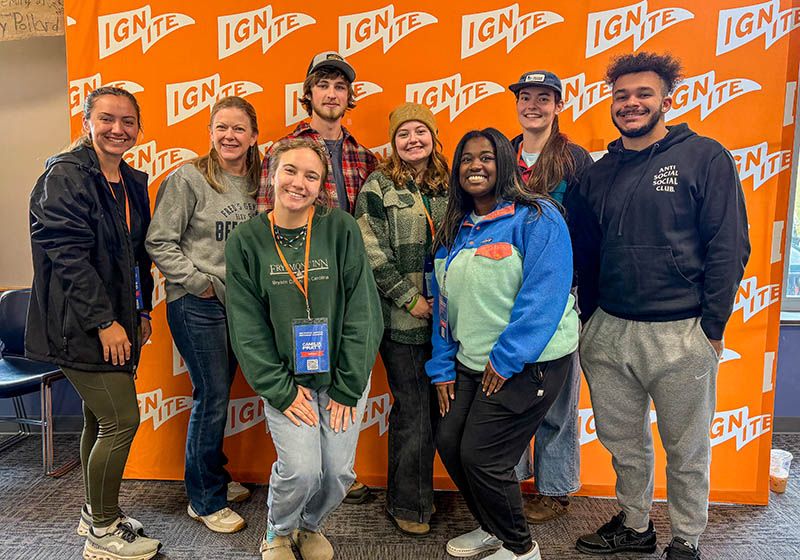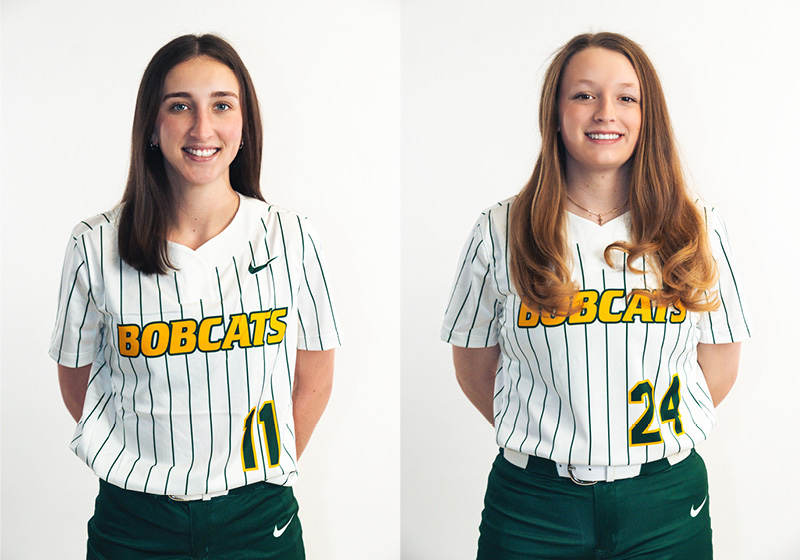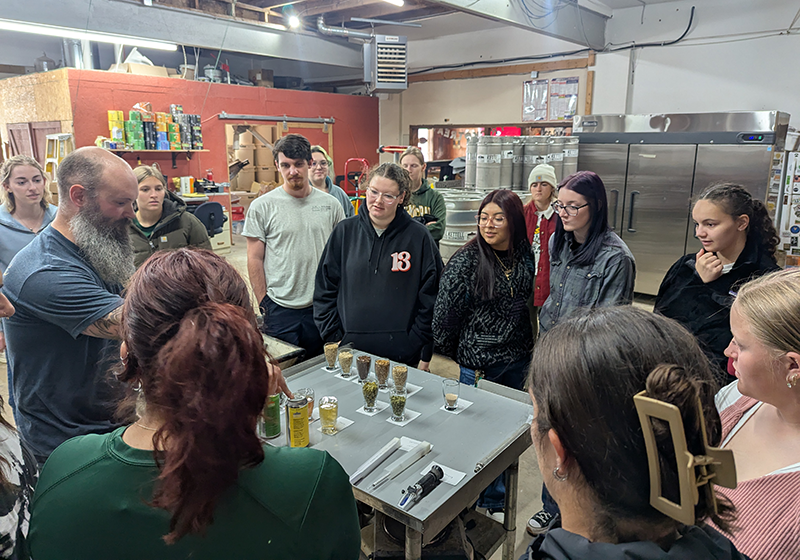
English major Mercedes Hawks talks poetry, process, and the inspiration behind her work
English major Mercedes Hawks wrote her first poem at just 10 years old. Her parents had parked their camper next to a lake and Hawks, armed with her journal and a sense of wonder, walked out onto a dock atop the lake to pen the first piece in her poetic oeuvre.
“It was probably the worst thing I’ve ever written, but it really jumpstarted my career,” Hawks, who is also earning minors in Creative Writing and Appalachian Studies, said.
Hawks’ Appalachian background is an identity that guides her work. She is also guided by her life experiences, grief, love, religion, and other writers from whom she draws inspiration—Sylvia Plath, Charles Bukowski, and Anais Nin to name a few.
“Being from Appalachia, I’m also very rooted in my place, where I am from, and the beauty and the darkness in that shows up in my work,” Hawks said. “All the things I have experienced are filtered through that, and I think grief is one of those big things. I love contrasting grief and life and making them this kind of sphere of existence.”
Over the last decade or so of writing poems Hawks has strengthened her grip on the art form and has begun creating work she feels proud of. She has expanded her mediums, and now also writes short stories and has recently begun work on a project she hopes to develop into a novella.
One of the biggest evolutions in her career as a poet, however, is her audience. For the past two years Hawks has been consistently submitting her work to magazines and independent zines and has begun to land publications. Her poem “Unlucky Girls” was recently published in Jardin Zine, an independently run online zine that publishes poetry, flash fiction, critical essays, and more from writers who submit their work from across the country.
Another poem, “Baby at My Breast, Tell Me What You Know”—one of her first to be published—appeared in Orlando, a single-issue print zine published by a group of students at the University of North Carolina at Chapel Hill. Her work also appears in volume three and volume four of Ragweed, the student-run literary journal here at Lees-McRae.
“[Orlando] kind of rocket launched me into this whole world of small literary magazines and these small publishing presses that I am so fascinated by. Now I’m submitting quite frequently—I’m submitting like one or two a week—to these journals and magazines,” Hawks said. “It’s never guaranteed, but it’s kind of a fun process, because you are putting yourself out there, and you’re putting your work out there so it’s no longer your own. It’s a difficult process for a lot of beginners, but I’ve been doing this now for about two years, and I’ve gotten pretty comfortable with it.”
For other young writers who are looking to get over that hump and begin submitting their own work for publication Hawks has three pieces of advice: be passionate about your craft, believe in the work you create, and be open to criticism. She encourages other writers to be confident enough in their work that they are willing to fight for it, while remaining humble enough to accept other people’s interpretations and critiques.
“Sometimes I meet writers who aren’t actually passionate about writing, and I think that’s the number one thing you need because rejection is so frequent in this world. It’s so harsh in this world at times that I think the more passionate you are, the more likely you are to not give up,” Hawks said. “Believe in your work, believe in what you’re making, and believe in its ability to do something good for the outside world. Be open to different perspectives. Take criticism lightly but take it to heart too. It matters what people have to say about your work. In other eyes your work will appear differently than it does in your own, and that is a good thing.”
At the moment, Hawks is not writing as much as she sometimes does. She does not like the term “writer’s block,” and instead describes phases like this as an opportunity for the writer to step away from their work and fully experience life, living and touching and experiencing things “like a baby would” in order to return to the desk with a new well of experience from which to draw.
In the meantime, she has been focusing a lot on her academic experience and understanding her goals for the future. Following graduation from Lees-McRae she plans to earn a master’s degree in creative writing and has professional goals of working in editing and publishing, while continuing to produce her own work.
“I often find that when I’m in these periods of not writing, I always come out with a different perspective, and I’m constantly blossoming over and over again. For my work that’s very important, and I’m hoping that continues throughout my life,” she said. “Lees-McRae in particular has a wonderful English program with wonderful professors who have so many resources and so much information. I found a degree important partly for the experience of being in a world of academia and being surrounded by other writers, other people who are passionate about the weird niche things I’m passionate about.”
Her time at Lees-McRae has been integral not only to her academic and artistic growth, but also for experiencing the personal growth that Hawks says helps facilitate this “blossoming” between phases of intense writing.
“I didn’t want to go to college for a long time, and one day I was thinking about what I was really interested in, and I had a couple teachers pressing me, and I decided to. It has been one of the best decisions I ever made to get an education and work toward a degree,” Hawks said.

